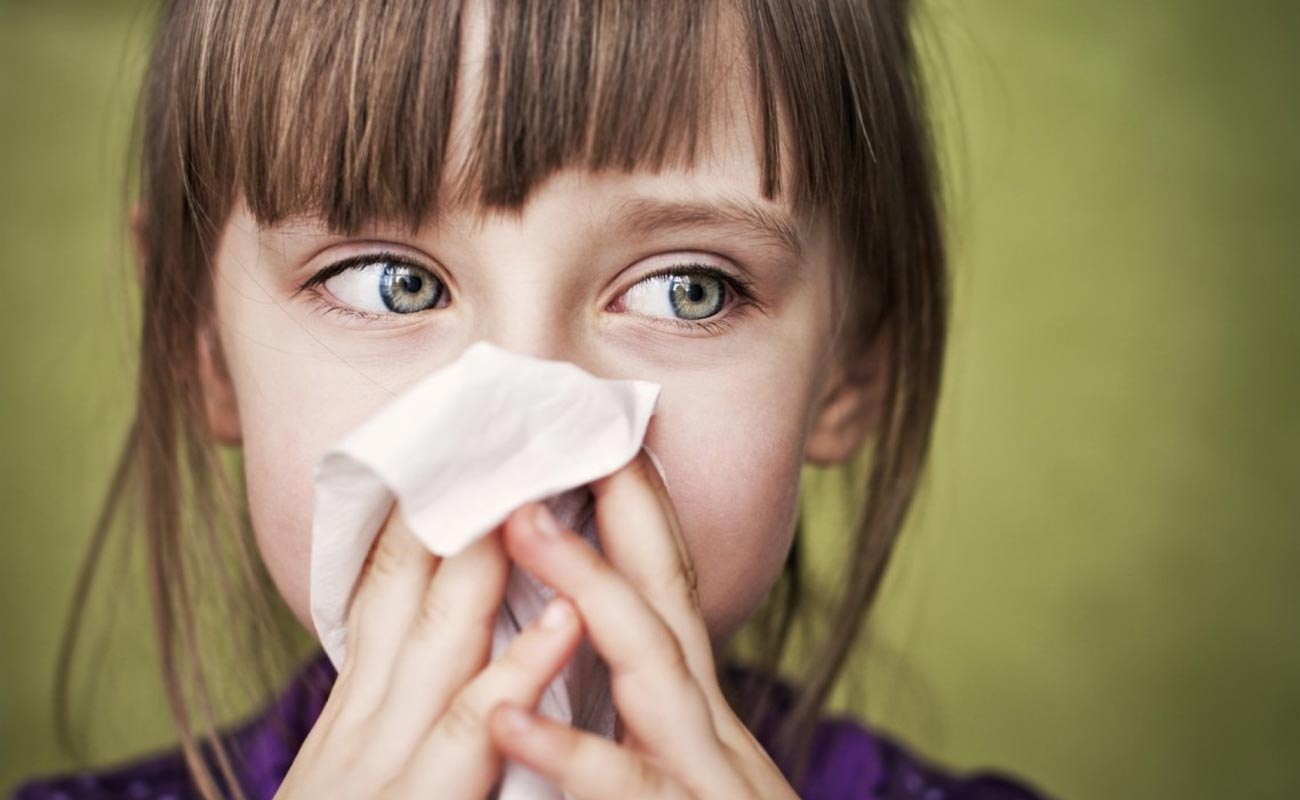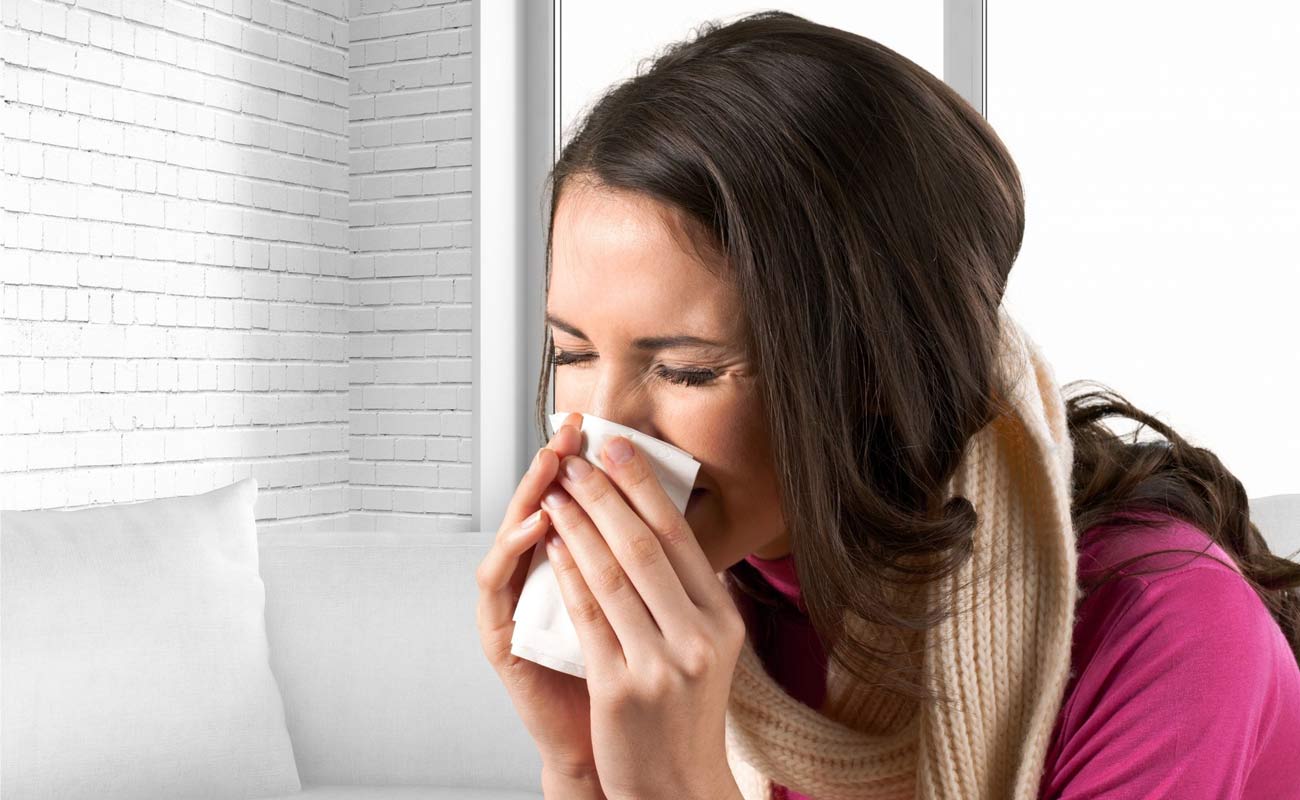
Allergic rhinitis, also known as hay fever or allergies, happens when your immune system react excessively to particles floating in the air that you breathe. In other words, you are allergic to these particles. When your immune system attacks the particles that have entered into your body, some symptoms like sneeze and a runny nose appear. The particles are known as allergens. It means they may trigger an allergic reaction.
Individuals with allergies typically experience the symptoms for several years. You might experience the symptoms throughout the year, or only experience them at certain points during the year. You might also get troubled with some other difficulties including sinusitis and ear infections as the consequences of your allergies.
As the time passes by, the effects of allergens may become less and less, and the symptoms may not be as severe as the beginning.
Signs and Symptoms of Alergic Rhinitis

These symptoms may include the following:
• Rhinorrhea
• Postnasal drip
• Repeated sneezing
• Congestion
• Anosmia
• Headache
• Stuffy or runny nose
• Earache
• Tearing
• Red eyes
• Watery eyes
• Eye swelling
• Exhaustion
• Sleepiness
• Swollen eyelids
• Malaise
• Itchy mouth, eyes, nose, ears, palate
• Partial loss of hearing, smell, and taste

As it is obvious, the immune system is aimed at fighting damaging substances like microbes and viruses. If you get allergic rhinitis, your immune system reacts to inoffensive substances, like pollen, mold, and pet dandruff. The overreaction of the body towards the harmless substances is called an allergic reaction.
Those allergic rhinitis happening in some specific seasons are caused by pollen and mold spores. Some of the sources for seasonal allergic rhinitis include:
• Ragweed in autumn (which is the most prevalent seasonal allergen)
• Tree pollen during spring season
• Grass pollen in late spring and most of summer season
• Fungus, mold growing, on dead leaves (which is common during summer and autumn seasons)
Allergic rhinitis that happen throughout the year may be caused by:
• Pet dander
• Cereal grain
• Dirt, dust, and household mites
• Molds that are developing on house plants, wallpaper, carpeting, and upholstery
• Cockroaches
• Smoke
• Smog
The physician is usually able to diagnose this condition based on your symptoms and your personal and family medical history.
You’ll be asked whether you have perceived any causes that seem to be responsible for a reaction, and if the condition occurs at a specific time or place.
The medical practitioner might examine the inner part of your nose in order to find out whether you have nasal polyps.
Nasal polyps are referred to those fleshy swellings developed from the lining of your sinuses or your nose. Nasal polyps may be caused by the swelling that happens due to allergic rhinitis.
At the point where medical treatment begins, allergic rhinitis is typically confirmed. If one responds well to antihistamines, the physician will be nearly sure that an allergy has triggered one’s symptoms.
Allergy testing
When the exact reason of allergic rhinitis is not clear, the medical practitioner might refer the patient to clinic specialized in allergy testing.
Two key tests for detecting allergy:
• blood test
The test is carried out to check for the immunoglobulin E (IgE) antibody in the blood stream; this antibody is produced by your immune system in order to respond to an assumed allergen
• skin prick test
If an allergen is sited on your arm or the surface of your skin, the skin is then pricked with a needle to announce the allergen to your immune system; also, if one is allergic to the substance, a very tiny itchy red spot called welt will be appear
There are some commercial allergy testing kits that are not recommended because the testing is in these kits do not usually have a high standard.
It should also be considered that the results of the test be interpreted by a highly qualified medical professional who has detailed understanding of your symptoms as well as your medical history.
Other tests
In some of the cases some more hospital tests may be required to check for complications, like sinusitis or nasal polyps.
For instance, you might require a:
• Nasal endoscopy
When a thin tube with a light and a camera at one end (forming the device known as endoscope) is put through your nose so that your doctor would be able to look inside your nose
• Computerized tomography (CT) scan
a type of scan that employs both X-rays and computer to make full detailed images of the inner part of the body
• Nasal inspiratory flow test
when a small tool is positioned over your nose and mouth to measure the flow of air at time of your nasal inhaling

The most common and important treatments for allergic rhinitis are involved with avoiding allergens, managing symptoms by the help of medications and some other home treatment. In some of the cases, taking immunotherapy like allergy shots. The duration of the treatment has to do with frequency of occurrence of your symptoms.
Avoiding allergens
It is of significant importance that you try to avoid allergens that are responsible your symptoms. This way, you might be able to decrease your allergy symptoms and therefore control them without needing any medication or with way less medicines.
It is also recommended that a patient try to have his home cleaned to eliminate dust, molds, or animal dander. The patient you might need to stay indoors in seasons when pollen counts are high.
Managing symptoms
Taking medications and considering some other home treatments may help you controlling and managing your symptoms. For instance, over-the-counter allergy medications including antihistamines or decongestants might help relieving some of your symptoms. These medications can come in the form of a tablet, eye drops, liquid, or nasal spray. The physician might prescribe stronger kinds of these medicines. You can also do some other things such as cleaning your nasal passages at home to help improvement of your symptoms.
Submit Comment